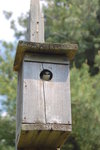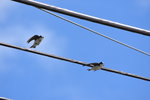 Narrowsburg
NarrowsburgLight Rain Fog/Mist, 43°
Wind: 8.1 mph
 Narrowsburg
NarrowsburgThe almost-unimaginable yet historic decision by the Delaware River Basin Commission (DRBC) to permanently ban fracking in the Delaware River Watershed was announced on February 25. Eleven years of …
Stay informed about your community and support local independent journalism.
Subscribe to The River Reporter today. click here
This item is available in full to subscribers.
Please log in to continue |



The almost-unimaginable yet historic decision by the Delaware River Basin Commission (DRBC) to permanently ban fracking in the Delaware River Watershed was announced on February 25. Eleven years of intense public discourse and the grueling diligence of countless individuals and organizations led to this monumental action to protect the natural resources and communities of this region from the impacts of natural gas extraction.
For many reasons, ranging from the quality of our water and air to the wellbeing of regional wildlife, this is excellent news!
As a reporter and columnist for the River Reporter during the early and ensuing days of fracking, we first began to hear rumors about “landmen” approaching local landowners and quickly realized there was much to be learned about hydraulic fracturing. I am so proud of the work our small staff did to dig into the realities of drilling and to share that knowledge with the communities we serve. I remain forever grateful to all those we were privileged to partner with in seeking those truths.
The harms of fracking and its associated infrastructure are many. Some are still being discovered, like the impacts of natural gas pipeline compressor noise on the reproductive success of songbirds such as tree swallows and Eastern bluebirds.
A recent story by Jeff Mulhollem of Penn State News explores the conclusion of a team of Penn State researchers: Although the number of eggs laid by the birds is unaffected by the noise, their reproductive success is ultimately diminished.
The study was co-authored by Margaret Brittingham, professor of wildlife resources, College of Agricultural Sciences and Julian Avery, associate research professor of wildlife ecology and conservation. It included “unceasing playback of recorded compressor noise, 80 new, never-before-used nest boxes occupied by Eastern bluebirds and tree swallows, and behavioral observations with video cameras placed within boxes.”
According to Brittingham, both bluebirds and tree swallows nesting in noisy boxes spent less time incubating their eggs, had fewer eggs hatch and produced fewer young than their neighbors nesting in quiet boxes. The story also notes, “Compressor stations needed to pressurize gas and push it through pipelines to consumers—often located in interior forests used by breeding birds—may be depressing birds’ reproduction in isolated forested areas.”
“The loud, low-frequency noise emitted by natural gas compressor stations travels hundreds of yards into undisturbed areas,” said Avery. “Because shale gas development often occurs in relatively undisturbed natural areas that provide important habitat for breeding birds, it is imperative that we develop plans to manage and mitigate noise.” Learn more at www.bit.ly/paenvi09.
Comments
No comments on this item Please log in to comment by clicking here